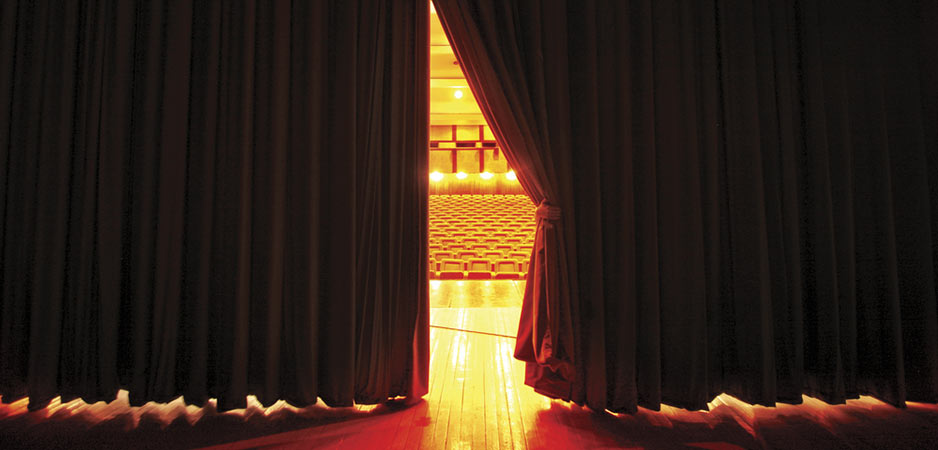The playwright Eugene Ionesco spent most of his childhood in France but moved to Bucharest, Romania, as a teenager to study at the prestigious Saint Sava National College. Calling themselves the “young generation,” he and his friends cultivated a fertile intellectual circle, making a name for themselves in the cultural press. After World War II, some of Ionesco’s friends, such as Emil Cioran, Mircea Eliade, Constantin Noica and Mircea Vulcanescu, became celebrated philosophers and scholars in their own rights.
Young Men, Alienation and Violence in the Digital Age
In 1934, Ionesco published his first book of literary criticism titled “No.” Four years later, he moved to Paris to study for his doctorate. He returned to Romania when the money ran out, where he lived in terror lest anyone discover that Jewish blood ran in his veins from his mother’s side of the family. He managed to return to France in 1942, where he befriended Andre Breton and moved in Dadaist and surrealist circles.
Ionesco’s first play premiered in Paris in 1950, and he became associated with the Theater of the Absurd. Many of his plays expressed bitter pessimism about the human condition, and in 1958, the English critic Kenneth Tynan accused him of rejecting reality by burying his head in the sand and promoting escapism. Under pressure to conform to the French Marxism that was popular in Paris during the 1950s, Ionesco defended “anti-politics” and wrote his most famous play, “Rhinoceros,” which premiered in 1959.
Friends Became Fascists
According to Ionesco himself, “Rhinoceros” was inspired by his experience of 1930s Romania, when most of his closest friends became fascists, but later he applied to play to people who accepted any ideology he thought was “totalitarian.” Ionesco had an acrimonious argument with his father over fascism and anti-Semitism in 1936, which ended with him storming out of the restaurant and cutting his father out of his life.
Like most of his friends — most importantly Cioran, Eliade and Noica — his father was a member of the Legion of the Archangel Michael, a popular but sometimes illegal fascist movement whose activities frequently attracted the attention, and ire, of the press. Ionesco later wrote that he found “it hard to forgive” them for their politics before and during the Second World War, even though he stayed in touch with some of them abroad.
Ionesco did not publicly identify as Jewish, and he appears to have been angry at his friends for subscribing to an abhorrent ideology rather than because he suffered at their hands. In contrast, another of his friends, Mihai Sebastian, wrote in his diary about how this group frequently made snide comments about him, gossiped behind his back and did nothing to help him when anti-Semitic laws took away his income and restricted his freedom of movement.
What Happens in “Rhinoceros”?
In “Rhinoceros,” Ionesco argued that becoming a fascist was an illness. At first, the audience hears about rhinoceroses (fascists) running about town, and the protagonists debate whether they are African or Asian rhinoceroses. The question is whether Romanian fascism was of the Italian or the German variety.
More and more characters turn into rhinoceroses as the play develops, until Berenger, Ionesco’s alter-ego in the play, and his girlfriend Daisy are some of the only humans left. Standing alone within a fascist peer group is not easy. Finding himself isolated in a world where everyone else is a rhinoceros, Berenger starts to doubt himself and to abuse Daisy. Berenger is not at risk of becoming a fascist because he is always late, dresses badly and drinks too much.
Ionesco wrote in his notebooks in the late 1930s: “I am not a New Man. I am a man. Imagine one fine morning that rhinoceroses will take power. They have a rhinoceros ethic, a rhinoceros philosophy, a rhinoceros universe.” But none of the protagonists in the play who become rhinoceroses do so because they are converted to the new philosophy. It is an involuntary change that happens without the person even being aware of it. When the play was used as the basis for a zombie movie in 2008, it became apparent that there is little difference between the process of becoming a rhinoceros and being bitten by a zombie.
Berenger’s friend, Jean, undergoes his prolonged transformation on stage, in front of the audience, with all of the theatrical challenges for the director that entails. Jean’s metamorphosis is gradual. It begins with a headache, but he doesn’t remember when he hit his head. Then, a bump appears on his forehead, his voice goes hoarse and his skin starts to turn green. But Jean refuses to believe that he is ill. He claims that his swollen veins are “a sign of virility,” that he mistrusts doctors and that Berenger is in no position to judge him because his perspective is skewed by his “past debaucheries.”
A Valuable Contribution
The first-person perspective on the spread of fascism provided in “Rhinoceros” is valuable because it shows how disorienting it is for non-fascists. Not only do the political choices of family and friends seem inexplicable, but they also create anxiety for non-fascists who wonder if they are misunderstanding something that is clear to everyone else or if they are somehow not good enough to be fascists.
Ionesco’s experience helps us move beyond sociological theories about the rise of fascism and reminds us that discovering that all of one’s friends are fascists can pose profound emotional and psychological challenges for those “left behind.”
*[Fair Observer is a media partner of the Centre for Analysis of the Radical Right.]
The views expressed in this article are the author’s own and do not necessarily reflect Fair Observer’s editorial policy.
Support Fair Observer
We rely on your support for our independence, diversity and quality.
For more than 10 years, Fair Observer has been free, fair and independent. No billionaire owns us, no advertisers control us. We are a reader-supported nonprofit. Unlike many other publications, we keep our content free for readers regardless of where they live or whether they can afford to pay. We have no paywalls and no ads.
In the post-truth era of fake news, echo chambers and filter bubbles, we publish a plurality of perspectives from around the world. Anyone can publish with us, but everyone goes through a rigorous editorial process. So, you get fact-checked, well-reasoned content instead of noise.
We publish 2,500+ voices from 90+ countries. We also conduct education and training programs
on subjects ranging from digital media and journalism to writing and critical thinking. This
doesn’t come cheap. Servers, editors, trainers and web developers cost
money.
Please consider supporting us on a regular basis as a recurring donor or a
sustaining member.
Will you support FO’s journalism?
We rely on your support for our independence, diversity and quality.







